General Paik Sun-yup Gets 5th Level Funeral from the Government, But 1st Class Memorial from the Citizens
2020-7-15, Tara O
General Paik Sun-yup (백선엽) passed away on July 10, 2020 at age 99 (Korean age: 100). General Paik’s contributions to his country during the Korean War and after, and to the Republic of Korea (ROK)-U.S. alliance are immense. Most notably, as the First Infantry Commander during the Korean War, he and his troops engaged in the bloody battle at Tabu-dong (the “Bowling Alley”) to defend the Busan(Pusan) Perimeter; if the Busan Perimeter fell, then North Korea could have overrun the entirety of South Korea.
[Note: Korean newspapers report that General Paik is 100 years old, while foreign newspapers report that he is 99. In Korea, a person is 1 year old as soon as one is born. It is a difference in the age counting system.]
The Moon administration had refused to provide a burial plot for General Paik at the main National Cemetery in Dongjak District, Seoul. Ironically, it was General Paik and President Syngman Rhee, back in 1952 during the Korean War, who decided to construct a national cemetery at Dongjak, Seoul for the soldiers who lost their lives during the Korean War. Many of his fellow Korean War soldiers are buried there, and it has been his wish to be buried alongside them. Instead, General Paik will be buried at the National Cemetery in Daejeon. The government also decided to give General Paik the Army Chief of Staff level funeral, which is a 5th level down official funeral by protocol.
The protocol for official funerals are:
- Gookka-jang (국가장, national level, e.g., head of state; national hero) (The next level was Gookmin-jang (국민장, National Citizen level), but this was merged with higher Gook-jang to make the current Gookka-jang level).
- Sahoe-jang (사회장, Society level)
- For Military, Gookgoon-jang (국군장, ROK Military level)
- Hapcham-jang (합창장, ROK Joint Chief of Staff level)
- Chief of Staff funeral, Army/Navy/Air Force (육/해/공군장 service chief level)]
(Note: Seoul Mayor Park Won-soon, who the authorities said died on July 10, 2020 by suicide a day after sexual harrassment charges were filed by his former secretary, is receiving Sahoe-jang, 3-levels higher in protocol than the Army Chief of Staff level, at the City Hall.)
Given the downgrading in both the burial plot and the funeral level, the citizens’ groups organized a “Citizens’ Memorial Altar” for South Koreans to pay tribute to General Paik for five days. This is separate from the official funeral set up at the Asan Hospital in Songpa District, Seoul. When the citizens groups first tried to set up a citizen’s memorial altar at Gwanghwamun, about 30 police and 10 Seoul city officials tried to block them from setting up the altar, by saying the Gwanghwamun area belongs to Seoul City, and an assembly there is not possible. (23:18) Gwanghwamun is a plaza open to the public, and numerous protests, festivals, and other assemblies continuously occur there.
About 25,000 South Koreans visited the altar at Gwanghwamun to bid farewell to the national hero. Rain was no deterrence. The Word News called this continuous stream of citizens paying tribute to General Park a “genuine Gookminjang (국민장).” The following photos and more photos are available on Word News.
The KORGAD (Korean Retired Generals and Admirals Defending the Nation) issued a statement demanding the government bury him at the National Cemetery in Seoul and to promote him posthumously to five-star general.
Meanwhile, South Korea’s ally the U.S., expressed its “deepest sympathies and gratitude” and stated “his service to his country in the Korean War was emblematic of the fight for the values of freedom and democracy, values that both the United States and the Republic of Korea continue to uphold today” through the State Department.
The US National Security Council also tweeted “#SouthKorea is a prosperous, democratic Republic today thanks to Paik Sun-yup and other heroes who put everything on the line to defeat Communist invaders in the 1950s. We mourn General Paik’s death at age 99 and salute his legacy.”
Korean War Veterans Memorial Foundation mourned the loss of “a true and noble soldier” and a “true hero,” further stating, “General Paik became the first four-star general of the Korean army and was one of the most important and dedicated pioneers of the Korean armed forces.”
The Korean Defense Veterans Association, a veterans association, expressed, “General Paik’s role in defending South Korea against North Korea starting on June 25, 1950 is of historic importance to both South Korea and the United States.”
Recognizing General Paik’s contribution to the alliance, former ROK-U.S. Combined Forces Command (CFC) commanders have also expressed their condolences and admiration. General John Tilelli called General Paik a soldiers’ soldier, a hero, and a patriot” and lamented his loss.
General B.B. Bell described General Paik as “the father of South Korea’s military,” who “led to victory combat operations against the invading Korean People’s Army and Chinese forces.” General James Thurman stated General Paik “strengthened the ROK-U.S. alliance and is a true hero and a patriot” and expressed his sadness at losing his friend and mentor. General Vincent Brooks stated he has” for decades admired General Paik and that his death is a great loss to the alliance.”
Meanwhile, there have been no official statements from the Blue House or the ruling party regarding General Paik’s death.
Even more concerning, on July 13, 2020, Lawyer Rho Young-hee (노영희), who is also a radio program MC, broadcasted “how can he [General Paik] be interred at the National Cemetery, when he won by shooting at North Korea, our fellow minjok (ethnic Koreans)?” and said, “he shouldn’t be buried at the National Cemetery, even the one in Daejeon.”
Netizens responded by criticizing her:
Comment 1: “How can you denounce [General Paik], who risked his life to defend our country?…Do you think he should not have shot and let the country be communized?”
Comment 2: “So many citizens and the children of the citizens, who were massacred by and suffered under the North Korean military when North Korea invaded South Korea, are listening. Is that something you can really say?
Comment 3: “Isn’t the purpose of the National Cemetery to bury the soldiers who fought in the Korean War?”
Comment 4: “If you really want to focus on minjok, why not go to North Korea and broadcast there?”
Here are some videos of the citizens paying homage to General Paik Sun-yup.
“General Paik Sun-yup’s Memorial Altar at the Gwanghwamun Plaza Video”
Source: https://youtu.be/C8K7lMHY12Y
“Gwanghwamun Plaza Citizens’ Memorial Altar for General Paik Sun-yup”
Source: https://youtu.be/O7uX5FadfHU
“We the Youth will Guard General Paik Sun-yup’s Citizens’ Memorial Altar Until the End”
Source: https://youtu.be/82cuY6cEp6M
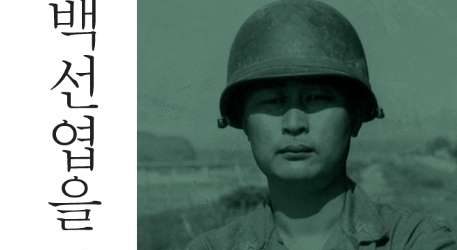
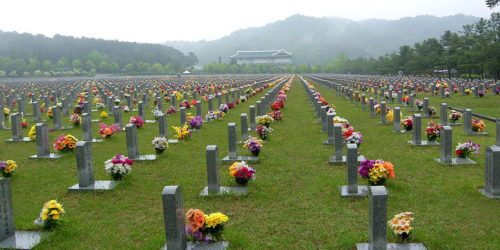
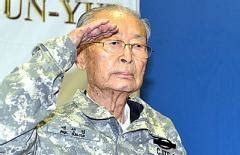
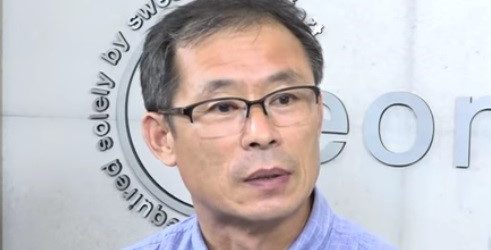
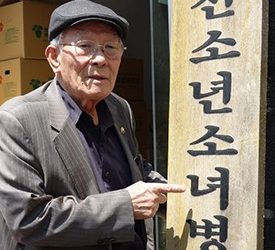
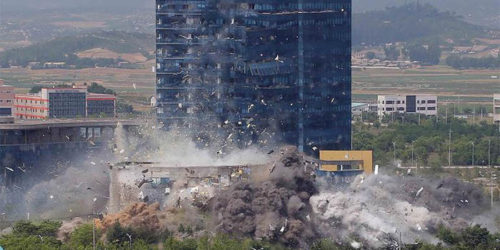
Thank you Miss Tara for your extensive coverage of the farewell by decent Koreans to Paik Sun-yup. The memory of this great and good man will be honored by a united Korea at a time when today’s overprivileged 40-somethings south of the Imjin will be beset by their guilt in excusing and glorifying the tyranny in Pyongyang and their guilt in supporting those inside and outside the Blue House who actively abet the same.
The General deserved a “1 burial for leading the military of South Korea in a war to defeat the communists and defend the right to a democratic society. The growth of South Korea as an economic power and the love and respect of the people for their Hero says it all.